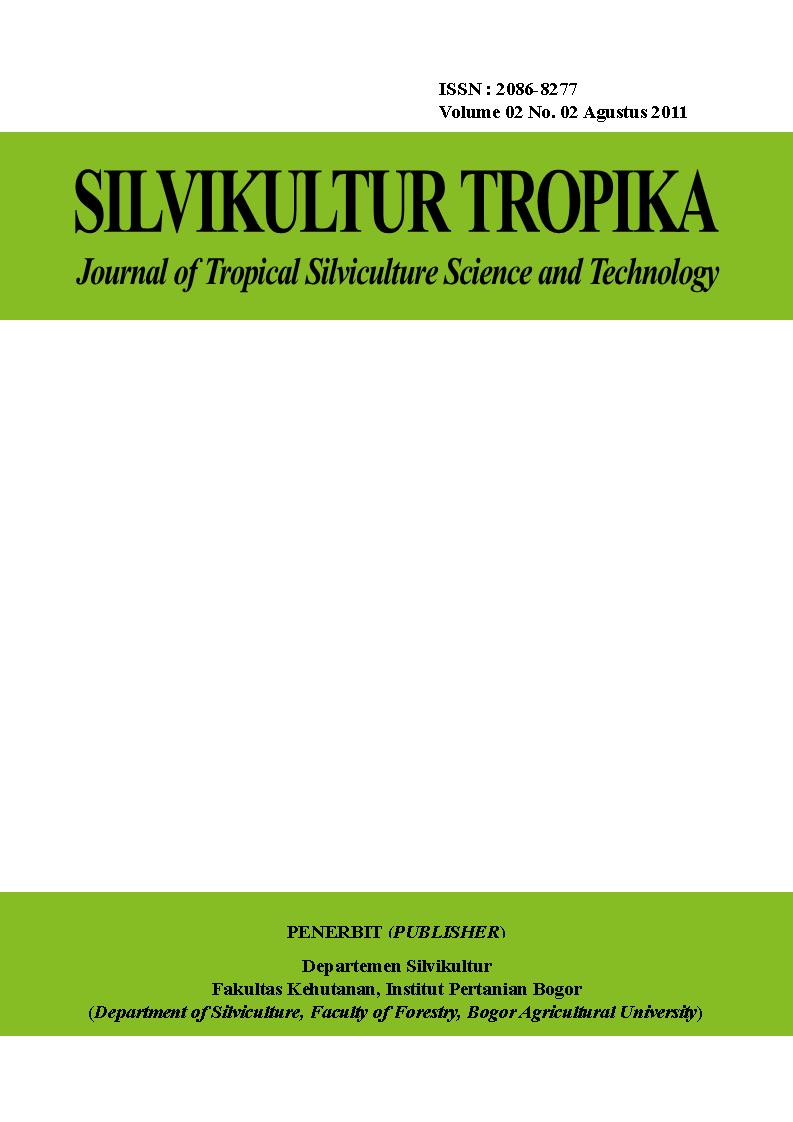The influence of Jatropha curcas Linn. Based Agroforestry Establishment to Land and Environment Productivity in Perum Perhutani KPH Bogor Plantation Area
Abstract
Agroforestry is one of society based forest management which have had important role to maintain and recover landproductivity since years ago. Ecological consideration was needed for such agroforestry which involve the use of natural
resources sustainable, by minimizing erosion and surface flow volume, and also biophysical environment. Jatropha
planting was aimed to fulfill market demand of Bio-fuel as alternate energy. This research was aimed to quantify
jatropha’s growth and land productivity in jatropha based agroforestry system; also to observe how jatropha based
agroforestry system affected environmental change (soil physical, chemical and biological properties, and soil erosion).
The result showed that the best jatropha’s growth response to height was the jatropha planting treatment as fencing in
young mahogany plot. Land productivity showed by increasing total above-ground biomass rised the highest level in 2nd
repetition of young mahogany plot, jatropha plant above ground biomass increased high in 1st repetition plot of young mahogany. Surface flow showed incisive decrease in young mahogany plot (with the smallest mean value). The jatropha based agroforestry system mixed with young mahogany also showed the lowest erosion level. The highest value of sedimentation was showed in marginal area as control treatment, and the lowest in jatropha based agroforestry system mixed with young mahogany. Content of soil C-organic, total-N and CEC were increase during observation, though jatropha planting was not significantly affected soil physical and chemical properties. The 2nd jatropha plantation mixed with young mahogany plot showed the best response to fungal content. Particularly jatropha based agroforestry mixed with young mahogany showed better impact on soil quality than marginal area.










